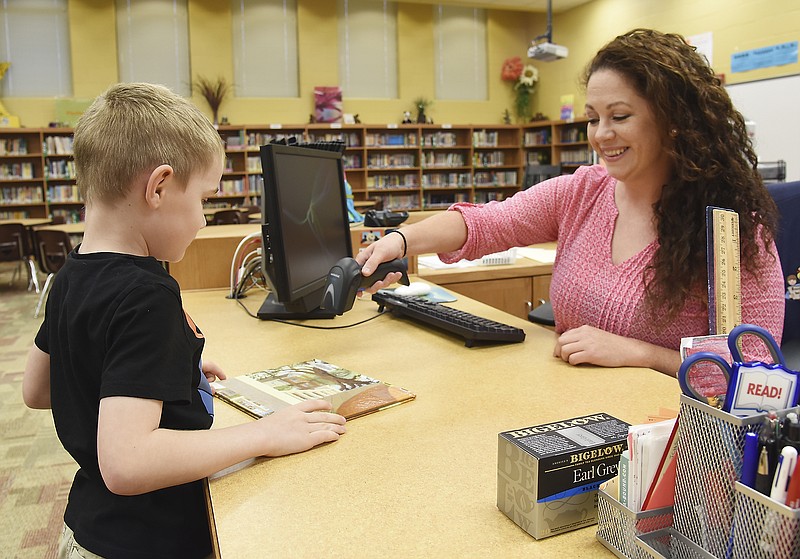Jefferson City Public Schools has established some new goals in its strategic "game plan" - including improved reading skills.
Superintendent Larry Linthacum said the new long-term goal is to have every student reading at or above his or her grade level or otherwise attaining individual educational goals if on a specialized plan.
Increasing the percentage of students reading at or above grade level is one of the district's three new short-term goals for improvement.
The district rolled out a new assessment tool called iReady at the beginning of last school year, which analyzed students' performance in reading and math.
"We suspected, and it became a reality for us, that the iReady assessment is a lot more comprehensive" than what the district had been using before, district Chief of Learning Brian Shindorf said.
Last year's results showed only 38 percent of the district's eighth-graders were reading at or above grade level by the spring.
Only 17 percent of first-graders were there in the fall, but younger students showed greater academic growth throughout the year. By the spring, 60 percent of first-graders were at or above their reading grade level. Kindergartners showed the most progress, going from 27 percent in the fall to 84 percent in the spring.
However, the older students showed less progress over the course of the year: 11 percent growth from fall to spring for sixth-graders; 10 percent for seventh-graders; and 4 percent for eighth-graders.
Shindorf said he doesn't have an exact answer for the downward growth trend, but he does know the district's curriculum is aligned with what the state expects and assesses.
IReady is different than the state's Missouri Assessment Program test, which usually shows significantly higher performance among students. For example, MAP results from 2015-16 determined 53.8 percent of eighth-graders in the district were proficient or advanced in English language arts.
Dawn Berhorst, the district's director of assessment and planning, said iReady is a diagnostic assessment, whereas MAP is a program evaluation.
Berhorst said the difference is MAP is a big-picture kind of assessment that examines how well the district's curriculum is working. IReady focuses on individual students' skills, using a computer adaptive assessment.
She said an incorrectly answered question in an iReady assessment leads to an easier question for the student. Answer that question incorrectly, and an even easier question appears - and so on until the computer assesses the student's skill level.
On the other end of the spectrum, correctly answered questions lead to more difficult questions, until a student gets an incorrect answer.
In terms of improving where students stand, Shindorf said, "We need to begin auditing and looking at some other things," like what the district's reading intervention programs look like at the middle-school level.
He said the district has response-to-intervention models operating, but they are "scatter shot." Response-to-intervention models assess what students can and can't do. He said they'll design intervention models more tailored to individual students' needs, based on recommendations for improvement from JCPS Director of Elementary Education Lorie Rost and Director of Secondary Education Gary Verslues.
Shindorf also said the district has purchased a new resource called "Words their Way" to implement this school year; it also includes professional development resources for teachers. Words their Way is for kindergartners through second-graders and focuses on foundational skills in reading and writing.
The next iReady testing window opens Aug. 28. Berhorst said the winter iReady assessment is in January and spring testing will be in May.

